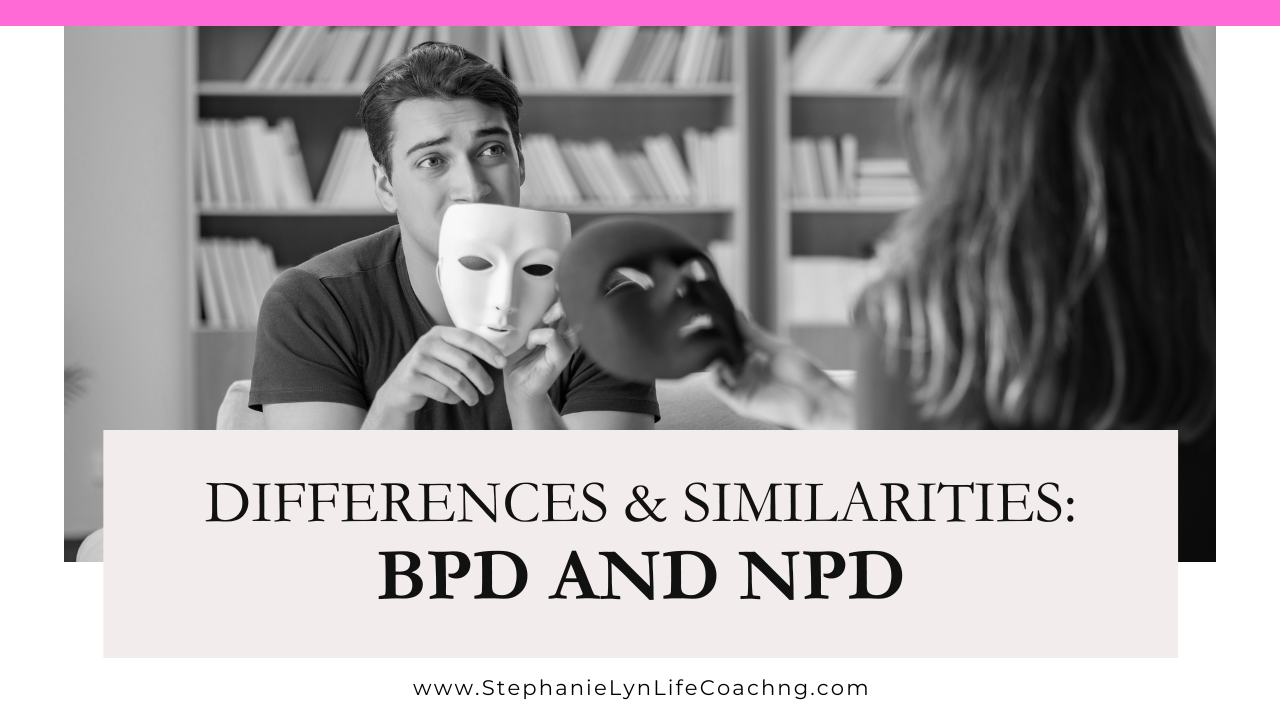Differences and Similarities: Borderline Personality Disorder and Narcissistic Personality Disorder
Sep 05, 2023
Borderline Personality Disorder (BPD) and Narcissistic Personality Disorder (NPD) are two distinct but often misunderstood mental health conditions. While they both fall under the category of personality disorders, they exhibit unique features, symptoms, and underlying psychological mechanisms. Some of these mechanisms are similar to each other and some are very different.
Understanding the differences and similarities between BPD and NPD is crucial for accurate diagnosis, treatment, and how to interact with both disorders.
BORDERLINE PERSONALITY DISORDER (BPD):
Borderline Personality Disorder is characterized by a general pattern of instability in personal relationships that this person has, as well as how they view themselves and their own emotions.
Individuals with BPD struggle with intense and unstable emotions, impulsive behavior, and a fear of abandonment. This unconscious way of operating causes them to have emotional Instability. They experience rapid and intense emotional fluctuations. They may feel overwhelmed by emotions such as anger, sadness, or anxiety, and these emotions can shift rapidly without apparent reason. This sounds similar to someone being bipolar, but this trait happens with a BPD out of the fear of abandonment.
A person with BPD may have difficulty maintaining stable and healthy relationships due to their fear of rejection and abandonment. They may idealize others in the beginning but become disillusioned and push people away when they feel threatened. When their fears of rejection start creeping in they will begin displaying outbursts which will hinder their relationship.
Most people with BPD do struggle with self-love and self-esteem. They do not know how to maintain that inner stability. They do not have a solid sense of self, which means that they do not understand who they are, nor have they accepted themselves. This creates self-hatred which only reinforces the feelings of not being good enough. That then reinforces their own fears of someone leaving as they need supply just as a narcissist does.
BPD is associated with a higher risk of self-harming behaviors and suicidal ideation. These actions often serve as coping mechanisms to manage emotional pain or a way to express feelings they cannot put into words. People with BPD may feel a persistent sense of emptiness, leading them to engage in impulsive behaviors in an attempt to fill the void.
A strong fear of abandonment is a hallmark of BPD. This fear can lead to desperate efforts to prevent real or perceived rejection from others.
NARCISSISTIC PERSONALITY DISORDER (NPD):
Narcissistic Personality Disorder, on the other hand, is characterized by an excessive preoccupation with one's own achievements, power, beauty, or intelligence. Individuals with NPD display a sense of entitlement, lack of empathy, and a need for admiration from others.
Individuals with NPD have an inflated sense of self-importance and may exaggerate their achievements and talents. They believe they are special and unique and expect others to recognize and admire them.
They lack the ability to connect with others in emotional ways. This means that often there is a limited amount or absent empathy in their relationships. They struggle to understand or consider the feelings and needs of others, often dismissing them as unimportant. It is not uncommon for a person with NPD to take advantage of others to achieve their own goals without regard for how it may harm or manipulate others.
The irony is that a narcissist will often appear confident, but they have fragile self-esteem and can be easily wounded by criticism. Many people with BPD, narcissists are jealous people. When you do not have high self-esteem someone else can threaten your ego continuously. They will become very envious of others’ success and believe they are superior to others. They can be arrogant and condescending towards people they view as inferior.
There is a lot of things you will never get from someone with NPD and that is respect. Your personal boundaries are never anything a person with BPD or NPD will respect as they feel entitled to invade others' personal space or privacy.
BPD and NPD have distinct underlying causes that contribute to their development. BPD is believed to stem from a combination of genetic, biological, and environmental factors, including childhood trauma, neglect, or invalidating experiences. These early life experiences may disrupt the development of emotional regulation and interpersonal skills, leading to the characteristic symptoms of BPD.
NPD is thought to be influenced by a combination of genetic predisposition and early life experiences, including excessive pampering, neglect, or excessively high expectations placed on the individual during childhood. The core of NPD is often rooted in a fragile self-esteem that relies on external validation to maintain a sense of self-worth.
While Borderline Personality Disorder (BPD) and Narcissistic Personality Disorder (NPD) may share some common traits, they are distinct conditions with unique characteristics, causes, and treatment approaches. BPD is marked by emotional instability, identity disturbance, and fear of abandonment, while NPD is characterized by grandiosity, lack of empathy, and an excessive need for admiration. Early diagnosis and appropriate treatment, such as psychotherapy, can significantly improve the quality of life for individuals dealing with these challenging personality disorders. Understanding the differences between BPD and NPD is essential for providing compassionate and effective support to those affected by these conditions.

